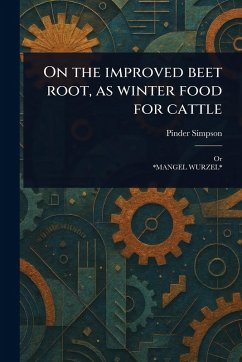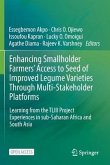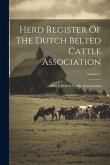Explore the historical intersection of agriculture and animal husbandry with Pinder Simpson's "On the improved beet root, as winter food for cattle." This detailed treatise examines the cultivation and practical application of the mangel-wurzel, a type of beet known for its value as cattle feed. Delve into the science behind utilizing the improved beet root to provide essential winter food for livestock. Simpson's work provides a valuable glimpse into agricultural practices of the past, offering insights into the cultivation of this important crop. This book explores the benefits of the mangel-wurzel and its crucial role in sustaining cattle through the winter months. A key resource for anyone interested in the history of agriculture, botany, and the cultivation of plants for practical use, this meticulously prepared print edition offers a window into a bygone era of farming. This work has been selected by scholars as being culturally important, and is part of the knowledge base of civilization as we know it. This work is in the public domain in the United States of America, and possibly other nations. Within the United States, you may freely copy and distribute this work, as no entity (individual or corporate) has a copyright on the body of the work. Scholars believe, and we concur, that this work is important enough to be preserved, reproduced, and made generally available to the public. We appreciate your support of the preservation process, and thank you for being an important part of keeping this knowledge alive and relevant.
Bitte wählen Sie Ihr Anliegen aus.
Rechnungen
Retourenschein anfordern
Bestellstatus
Storno









![Forest Life and Forest Trees [microform]: Comprising Winter Camp-life Among the Loggers, and Wild-wood Adventure: With Descriptions of Lumbering Opera Forest Life and Forest Trees [microform]: Comprising Winter Camp-life Among the Loggers, and Wild-wood Adventure: With Descriptions of Lumbering Opera](https://bilder.buecher.de/produkte/65/65561/65561093m.jpg)